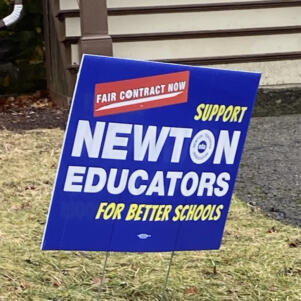Congress on Education: If It Don’t Work, Don’t Fix It
By Sandra Stotsky | October 13, 2017, 7:16 EDT

So far as we know, low achievement hasn’t been remedied by any of the strategies or programs that educators or policy makers have tried out since 1965 — the date of the first authorization of the Elementary and Secondary Education Act. We’ve already made a mess of the K-12 reading/literature curriculum and teacher professional development. We seem to be ready to do the same to pre-school programs. So why doesn’t Congress or major journals sponsor panel discussions on why we can’t seem to find something that really makes a difference?
Here are some of the major programs that haven’t worked.
1. Changes in the Reading Curriculum
Huge changes have been made to the content of the reading/literature curriculum. None has enhanced student achievement. There are no research studies of changes in literary or non-literary content for low achievers at any grade level. One can find “case” studies or anecdotes but no lists of titles that student groups have read over time showing their progress in levels of reading difficulty. Despite emerging claims of successful approaches to “personalized learning” (especially when expensive technology is used), no researcher has shown us a list of book titles high school students have been able to read in the context of “personalized learning” that made them “college ready.”
Since 2010, many schools have tried to ensure at least a 50/50 balance between literary and “informational” texts in the language arts curriculum from K-12. But there is no evidence that such a balance has improved the academic achievement of any group of students, although teachers have already reported on National Assessment of Educational Progress surveys a change in the focus of their reading/literature curriculum and a reduction in literary study.
After an analysis of the NAEP results in 2015 for reading and mathematics, Tom Loveless at the Brookings Institution asserted:
The 2015 NAEP scores were a political disaster for Common Core. Eighth grade math scores, for example, fell for the first time in NAEP’s 25 year history (down three points). … yes, nonadopters performed better than [Common Core State Standards] states, but only by declining less, not through improved performance.
2. Pre-School Programs
How about all the pre-school programs that have been federally funded for decades? In a 2017 report titled “The Current State of Scientific Knowledge on Pre-Kindergarten Effects” by an interdisciplinary group of scientists who reviewed the evidence on the impact of state-funded pre-kindergarten programs, the reviewers summarized their work as follows:
Convincing evidence on the longer-term impacts of scaled-up pre-k programs on academic outcomes and school progress is sparse, precluding broad conclusions.The evidence that does exist often shows that pre-k-induced improvements in learning are detectable during elementary school, but studies also reveal null or negative longer-term impacts for some programs.
The reviewers apparently couldn’t tease out factors that can be generalized as contributing to effectiveness. But they do imply that there may be some (unnamed) problems lurking in these preschool programs. After reading this study, a pediatrician concluded: “Our current knowledge is insufficient to justify a large expansion of pre-K as the best path forward.” And “… despite decades of study, there still really is no or very little evidence of effectiveness beyond the actual preschool year.”
It is not clear that Congress has even a mild interest in whether or not the funds it appropriates for low-achieving students in any education program today are effective. Some members of Congress seem to be incapable of accepting negative evaluations of the programs Congress supports and of asking for fresh or new ideas.Others may feel that just appropriating the money is enough to show good will towards low-achieving students and their parents even if the program damages the students or their teachers on a long-term basis.
3. Teacher Professional Development
The lack of a relationship between teacher professional development and student achievement is particularly acute in the argument about continued funding of Title IIin the Every Student Succeeds Act (ESSA) in the forthcoming federal budget. Most of Title II funds are for the professional development of teachers of low-achieving students, but credible reviews of professional development have found it almost uniformly ineffective for all teachers with respect to gains in student achievement.
Dated 2014, a short report by the Instructional Research Group at the Southeast Regional Educational Laboratory had the following to say about the few studies of mathematics professional development that could be examined, of all those identified in the search:
Of the 910 studies identified in the search for “effectiveness studies” of math professional development approaches, 643 examined interventions related to math in grades K–12 and were conducted in the United States. Of the 643 studies, the 32 studies listed in this appendix focused primarily on math professional development provided to teachers and used a research design for examining effectiveness. Five of those were determined to have met What Works Clearinghouse evidence standards (version 2.1) … And of those five, only two found positive effects on students’ math proficiency.
Thus, there is very limited causal evidence to guide districts and schools in selecting a math professional development approach or to support developers’ claims about their approaches. The limited research on effectiveness means that schools and districts cannot use evidence of effectiveness alone to narrow their choice. Instead, they must use their best judgment until more causal evidence becomes available.
An earlier review of the research on professional development in mathematics education reached a similar conclusion. The National Mathematics Advisory Panel (about 20 nationally recognized scholars, educators, researchers, and mathematicians) was charged with, among other things, making recommendations based on the best available scientific evidence on “the training, selection, placement, and professional development of teachers of mathematics in order to enhance students’ learning of mathematics.”
A subcommittee of the Panel developed criteria for “high quality research” on education. A Task Group on Teachers and Teacher Education examined all the relevant research brought to its attention by Abt Associates, a consulting agency for research and program implementation hired to locate this research using these criteria. Here is what the Task Group concluded:
The Task Group uncovered no studies … of sufficient quality where the designs and measures permitted them to ask and answer questions about teachers’ learning. Most studies used a simple pre- and posttest design with no comparison group or used self-report data on teachers’ learning. To ascertain the impact of professional development on students’ achievement, the Task Group did identify a small number of studies, but overall, these did not support any specific claims about the nature of professional development that affects teachers’ effectiveness.
Occasionally, a review appears and claims professional development is effective in raising student achievement. But the researchers/reviewers do not explain why the studies used for their findings have been deemed unusable according to the criteria used by other researchers/reviewers. (In one case, the criteria deeming the pro-professional development findings unusable were developed by the staff at What Works Clearinghouse; in the other, criteria were developed by the 20 or so scholars and researchers on the National Mathematics Advisory Panel and used by Abt Associates — a highly regarded consultant organization.)
Reporters rarely if ever ask teachers whether they wanted the professional development they have been given because they know the answer is apt to be negative. Even so, it is not surprising that studies find it is as disliked as it is ineffective. But if a federal, state, or local budget office proposes eliminating programs that are ineffective, Congressional howls are heard. Apparently, some members of Congress prefer to appropriate money for ineffective and possibly damaging education programs for low-achieving students rather than seek out the reasons for the damage.
Sandra Stotsky, former senior associate commissioner at the Massachusetts Department of Elementary and Secondary Education, is professor of education emerita at the University of Arkansas. Read her past columns here.











